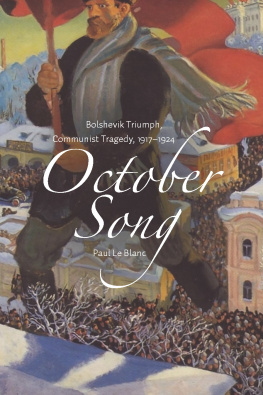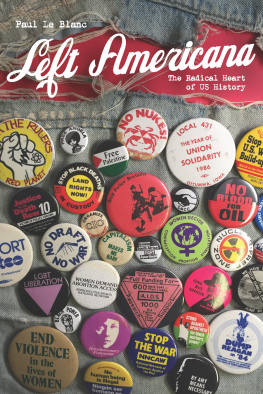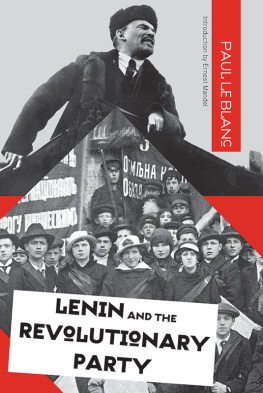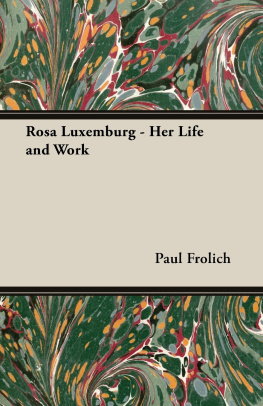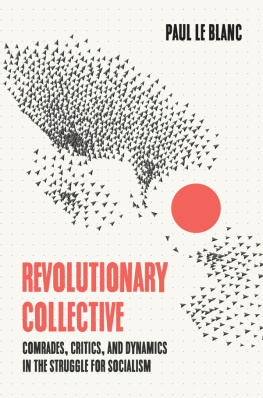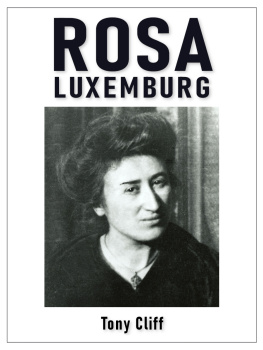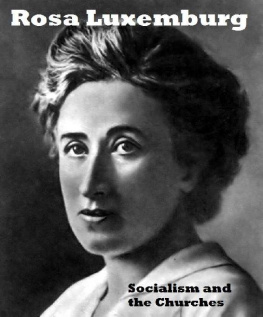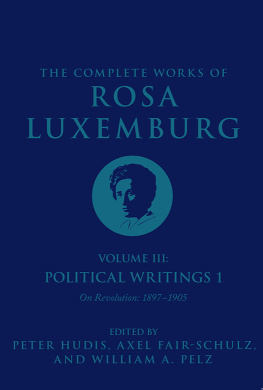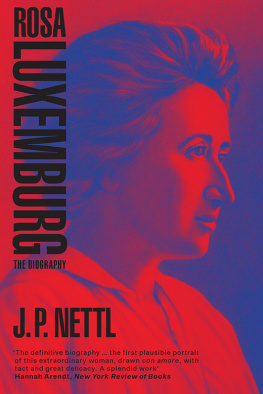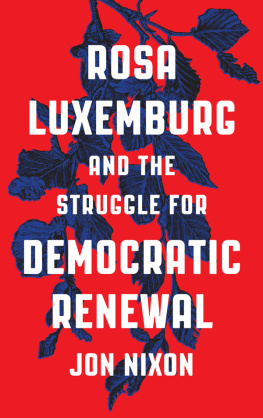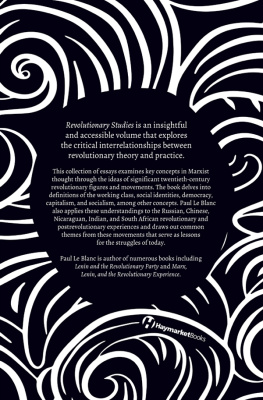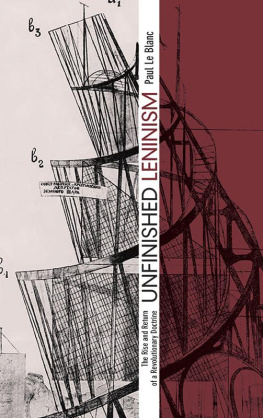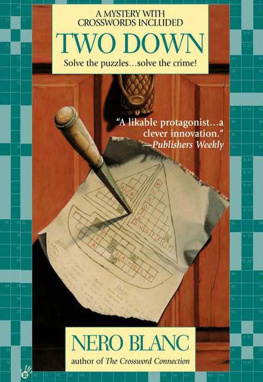Le Blanc - October Song
Here you can read online Le Blanc - October Song full text of the book (entire story) in english for free. Download pdf and epub, get meaning, cover and reviews about this ebook. City: Soviet Union, year: 2017, publisher: Haymarket Books, genre: Politics. Description of the work, (preface) as well as reviews are available. Best literature library LitArk.com created for fans of good reading and offers a wide selection of genres:
Romance novel
Science fiction
Adventure
Detective
Science
History
Home and family
Prose
Art
Politics
Computer
Non-fiction
Religion
Business
Children
Humor
Choose a favorite category and find really read worthwhile books. Enjoy immersion in the world of imagination, feel the emotions of the characters or learn something new for yourself, make an fascinating discovery.
October Song: summary, description and annotation
We offer to read an annotation, description, summary or preface (depends on what the author of the book "October Song" wrote himself). If you haven't found the necessary information about the book — write in the comments, we will try to find it.
Le Blanc: author's other books
Who wrote October Song? Find out the surname, the name of the author of the book and a list of all author's works by series.
October Song — read online for free the complete book (whole text) full work
Below is the text of the book, divided by pages. System saving the place of the last page read, allows you to conveniently read the book "October Song" online for free, without having to search again every time where you left off. Put a bookmark, and you can go to the page where you finished reading at any time.
Font size:
Interval:
Bookmark:
Praise for October Song
October Song is wonderfula vivid account of the Revolution, moving beyond the merely defensive to thoughtful consideration of not only external challenges but also internal problems among the revolutionaries, critical-minded yet at the same time deeply sympathetic.
China Miville, author of October
October Song is an important and timely contribution at a moment when large numbers of young people are turning to socialist politics and beginning to grapple with the lessons of the Russian Revolution. Combining a sharp analytical focus with illuminating anecdotes from political practice and daily life, Le Blanc provides a sweeping and engaging account of the revolution, the Bolsheviks, and their strengths and weaknesses. For all those seeking to make sense of this inspiring but ultimately tragic history, October Song is an essential read.
Eric Blanc, author of Anti-Colonial Marxism: Oppression & Revolution in the Tsarist Borderlands
October Song provides an essential primer on the major debates engendered by the Russian revolution. Drawing on the rich intellectual legacy of revolutionaries, eyewitnesses, historians, and theoreticians, the book is a must-read for any activist seeking to understand the heady promises and unanticipated pitfalls of revolutionary change. Analyzing the internal splits and social forces that ultimately defeated the revolutionary-democratic vision, October Song offers important lessons for everyone committed to social change today.
Wendy Z. Goldman, Paul Mellon Distinguished Professor of History, Carnegie Mellon University
Excellent in every respect... the writing is extraordinarily clear and interesting and the coverage of different interpretations is fair and thoughtful.... The use of the commentary by early participants and witnesses of these years makes the text original in many ways.... A strikingly effective synthesis of various sources provides a richness that I regard as really extraordinary.
Jonathan Harris, professor of political science, University of Pittsburgh
October Song provides a gripping retelling of the Russian Revolution, in which long-disputed issues receive close analysis and fresh but balanced judgments. The narrative is enlivened by nuggets from the full range of English-language testimony and historiography. A special bonus: close attention to the much-neglected peasant experience.
John Riddell, editor of To the Masses and Toward the United Front
Nothing Can Ever Be the Same
A n arduous voyage in 1917 brought four close friends, idealistic young journalists from the United States, to the shores of Russia. In the midst of an immensely destructive world war, the centuries-old tyranny of monarchist autocracy had been overthrown. The revolutionary process was continuing, and the four wanted to understand what was going on.
The revolution began with International Womens Day rallies on March 8 (February 23 according to the old tsarist calendar) that got out of hand. They sparked momentous insurgencies among the common working people of Petrograd, with the militarys rank and file refusing to repress the peoples uprising and instead joining it. Masses of workers and soldiers (the latter mostly peasants in uniform) organized a growing and increasingly substantial network of democratic councilsthe Russian word was soviety (or soviets )to coordinate their efforts. In addition to liberty (indicated by freedom of speech and organization, equal rights for all, the right of workers to form trade unions, and so forth), they demanded peace and bread as well as land for the countrys impoverished peasant majority. In the wake of the monarchys sudden collapse, conservative, liberal, and moderate socialist politicians scurried to form a provisional government that would contain the revolutionary process and consider how best to address the demands for peace, bread, land. The most militant faction of the Russian socialist movementthe Bolsheviks (majority-ites) led by Vladimir Ilyich Lenininsisted that peace, bread, and land would only be achieved by overthrowing the provisional government and giving all political power to the soviets. This, they believed, would spark a world process of workers revolutions that would end war and imperialism, overturning all tyrannies and bringing a transition from capitalism to socialism. After several months of intensive activity and experience, the Bolsheviks and their allies won majorities in the soviets and went on to make the second revolution of 1917a popularly supported insurrection on November 7 (October 25 according to the old calendar).
One of the eyewitnesses, John Reed, cabled the news back to the United States: The rank and file of the Workmens, Soldiers and Peasants Councils are in control, with Lenin and Trotsky leading. Their program is to give the land to the peasants, to socialize natural resources and industry and for an armistice and democratic peace conference.... No one is with the Bolsheviki except the proletariat, but that is solidly with them. All the bourgeoisie and appendages are relentlessly hostile.
The first of the four friends to get their books out (in October 1918) were Louise Bryant and Bessie Beatty. After ten decades, the freshness of their astute observations and vibrant impressions continues to reward the reader.
With Six Months in Red Russia, Louise Bryant is visibly wrestling toward an understanding of the vast and complex swirl of experience. I who saw the dawn of a new world can only present my fragmentary and scattered evidence to you with a good deal of awe, she tells us. I feel as one who went forth to gather pebbles and found pearls. Reaching for generalization, she writes: The great war could not leave an unchanged world in its wakecertain movements of society were bound to be pushed forward, others retarded.... Socialism is here, whether we like it or notjust as woman suffrage is here, and it spreads with the years. In Russia the socialist state is an accomplished fact.
Revolution is the blind protest of the mass against their own ignorant state, writes her friend Bessie Beatty in The Red Heart of Russia. It is as important to Time as the first awkward struggle of the amoeba. It is man in the act of making himself. Obviously still trying to comprehend what she had seen, she muses: Time will give to the world war, the political revolution, and the social revolution their true values. We cannot do it. We are too close to the facts to see the truth. But she immediately adds: To have failed to see the hope in the Russian Revolution is to be a blind man looking at the sun rise.
The last of the books to appear (in 1921), Albert Rhys Williamss Through the Russian Revolution, reaches for the interplay of cause and effect, of objective and subjective factors:
It was not the revolutionists who made the Russian Revolution.... For a century gifted men and women of Russia had been agitated over the cruel oppression of the people. So they became agitators.... But the people did not rise.... Then came the supreme agitatorHunger. Hunger, rising out of economic collapse and war, goaded the sluggish masses into action. Moving out against the old worm-eaten structure they brought it down.... The revolutionists, however, had their part. They did not make the Revolution. But they made the Revolution a success. By their efforts they had prepared a body of men and women with minds trained to see facts, with a program to fit the facts and with fighting energy to drive it thru.
The middle book of the fourappearing on January 1919was the one destined to become the classic eyewitness account, John Reeds magnificent Ten Days That Shook the World. A fierce partisan of the Bolsheviks, he quickly joined the world Communist movement that the Bolsheviks established in the same year that his book was published. But no one of any political persuasion can disagree with the generalization that appears in the books preface: No matter what one thinks of Bolshevism, it is undeniable that the Russian Revolution is one of the great events of human history, and the rise of the Bolsheviki a phenomenon of worldwide importance.
Next pageFont size:
Interval:
Bookmark:
Similar books «October Song»
Look at similar books to October Song. We have selected literature similar in name and meaning in the hope of providing readers with more options to find new, interesting, not yet read works.
Discussion, reviews of the book October Song and just readers' own opinions. Leave your comments, write what you think about the work, its meaning or the main characters. Specify what exactly you liked and what you didn't like, and why you think so.

